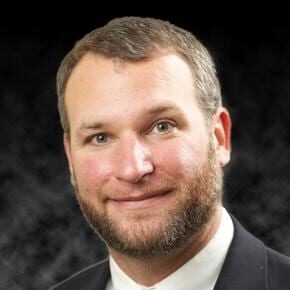We are continuing on the topic of professional development. Why do we continue to develop professionally? Well, one of the biggest driving factors for most is usually is comes with some form of career advancement, which also means MONEY!!
I mean who doesn’t want more money right? There is also a very powerful feeling of self-worth associated with advancing your skillset, qualifications, and advancing your career, which is more rewarding than just monetary gain.
So today we are going to jump into mentorships. Naturally the first question is: Do you have a mentor? Even if you have decades of experience or a high in the organization, as long as you aren’t at the very top there’s someone who can mentor you. I have spoken with some many people who consider themselves to have a mentor that they occasionally ask advice from, but this isn’t maximizing your potential gain. Formally defined mentorships, as opposed to informally defined ones, are the most successful, decreasing the odds of failure while increasing the chances of success and retention. Most mentors are happy to have mentorees that look up to them.
If your company doesn’t have a formal mentorship system in place, don’t be afraid to inquire! Even if they say no, informal mentorships are still a good thing relative to no mentorship.
If you don’t have a mentor then let’s run down some quick steps to help you identify one and establish the relationship.
Most identify a mentor as someone that is a farther up the career ladder than themselves, however sometimes this is not the case. If your mentor is not in the same industry and someone that you might consider at the apex of their career then is might be helpful to establish a Personal Board of Directors which we can get into next week.
I would however encourage you to seek out a mentor in the same industry that is significantly farther along in their career.
The other key to establishing the most effective mentorship is finding a mentor that has similar values as yourself. You don’t have to agree on everything like political party lines but you need to find someone that has a strong integrity and that has great management skills.
The next thing that you should to is make the ask. Make it formal. Have some generalized thoughts about what you might seek advice on and share these thoughts when you make the ask. Also set up a schedule to connect ideally at least once every one to two months.
I always treat my mentor when we meet, whether it is a meal or cup of coffee it is help in showing your appreciation for them taking the time to share their wisdom. Don’t forget to thank them every time they meet with you.
Have an agenda for the meeting and don’t waste their time. I take notes on my phone throughout the month of things or situations that I feel my mentor can advise me on. I then order them by importance and have that ready for the meeting. I also print it out so that I am not referring to my phone throughout the conversation. I take notes on the print out to help me remember the advice that was given to me.
We have a great blog on this as well that you can check out.






